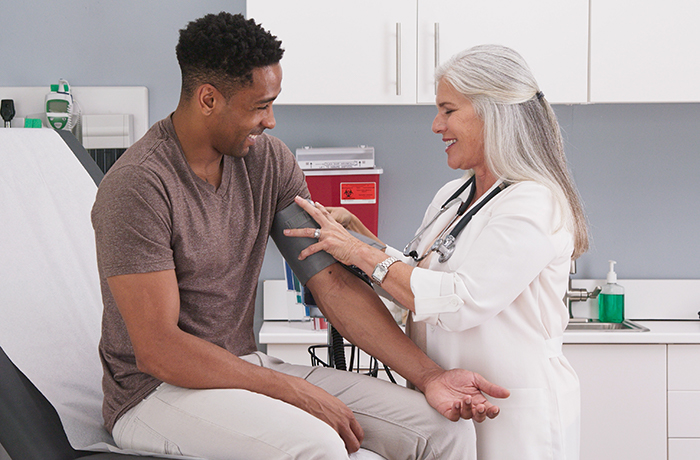
Editor's note: This is part two in a series on health & millennials. Check out part one: Are More Millennials Living With ADHD.
When you think of millennials, yoga, Zen and universal wellness might spring to mind. After all, they're considered to be the most educated and connected generation to date.
Yet despite appearances, the generation born from 1981 to 1996 is experiencing a faster health decline than Gen-Xers as they age. According to a recent report from Blue Cross Blue Shield, this decline not only extends to behavioral health issues, but physical conditions, too—one of particular concern being high blood pressure (hypertension).
“Without treatment, uncontrolled hypertension can lead to other serious health problems, including stroke, heart and vision issues, and kidney failure,” said Kristen Sumners, DO. “The good news is, preventing or managing high blood pressure is possible, especially by adhering to a healthy lifestyle.”
So what do doctors consider high?
The American Heart Association, American College of Cardiology and other leading health organizations recently lowered the definitions of normal, elevated and high blood pressure. A reading of 130 to 139 systolic mmHG (top number) or 80 to 89 diastolic mmHG (bottom number) is now considered stage 1 high blood pressure. (Learn more about blood pressure numbers and what they mean.)
Staying Well by Living Well
Making these lifestyle modifications part of your health blueprint will go a long way toward preventing or controlling high blood pressure:
- Shed extra weight. If you’re overweight, you can help your blood pressure drop from five to 20 points for every 20 pounds of weight lost.
- Work out. Strive for 30 minutes of physical activity on most days of the week. Talk to your doctor before beginning any new workout regimen, and remember, some exercise is always better than no exercise.
- Kick the butts. Smoking cigarettes is a top risk factor for high blood pressure, heart attack and stroke, so don’t give up on quitting.
- Drink less alcohol. More than two alcoholic drinks per day has been associated with a higher incidence of hypertension.
- Sideline salt. Most Americans should consume less than 1,500 milligrams of sodium a day for healthy blood pressure. If your blood pressure is too high, you should consume even less salt.
- Eat right. “For those with high blood pressure, following the DASH diet may be ideal,” Sumners said. “This plan emphasizes vegetables, fruits and whole grains, as well as fat-free or low-fat dairy products, fish, poultry, beans, nuts and vegetable oils, and limits sweets and foods high in saturated fats.”
- Lower stress. Though there isn’t a definitive link between stress and high blood pressure (and/or heart disease), it does play a role in our general wellness. Becoming more mindful about managing your stress levels will improve your health.
- Take medications, if needed. Your health care provider may also prescribe certain medications to lower your blood pressure. Be sure to take these every day, exactly how they’re prescribed.
“Millennial health stands to have a big impact on the country’s overall health and economic prosperity,” Sumners added. “That’s why it’s increasingly important for this generation to fight the behavioral and physical health threats they face, including high blood pressure.”
Do you know your numbers? Regardless of your generation, the first step to a healthy blood pressure is a checkup with your doctor. If you don’t have a physician, you can find one on our Find a Doctor page.